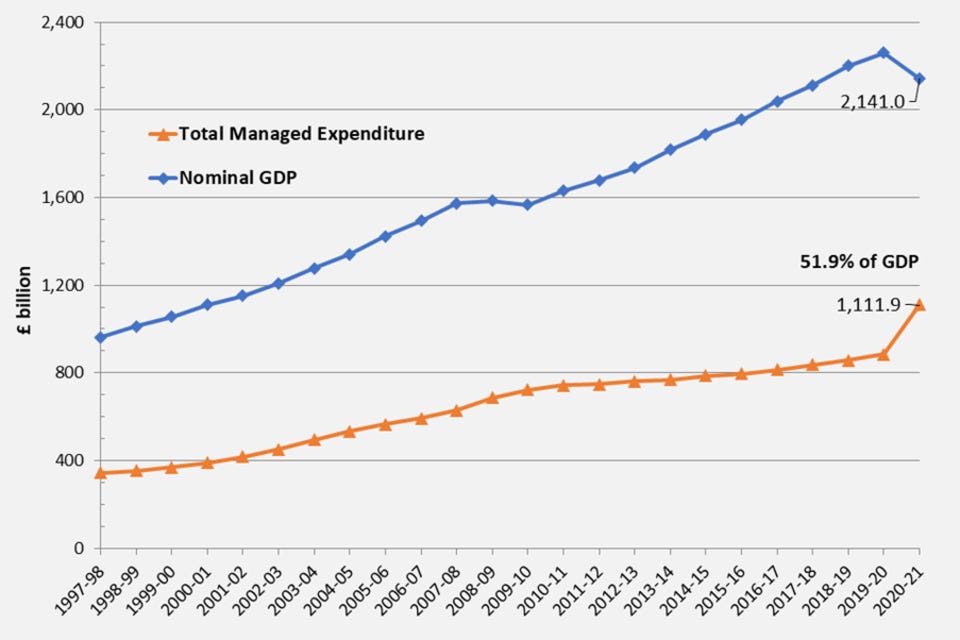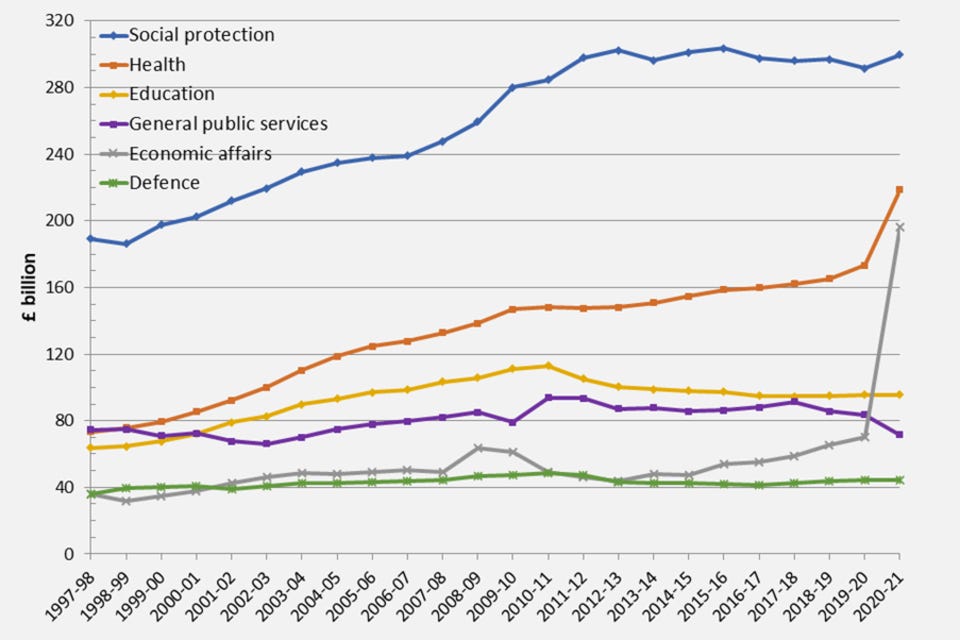The Myth of Austerity in the UK
Over the last decade there's been virtually endless discussion about the effects of austerity on the UK economy. The Guardian: The lost decade: the hidden story of how austerity broke Britain. FT: Years of austerity are now writ large on the UK state. NYT: What Is Austerity and How Has It Affected British Society?. And just a few days ago David Wallace-Wells, discussing the country's growth problems, wrote that "the country’s obvious struggles have a very obvious central cause: austerity".
There's just a little problem with all of this: there was never any austerity in the UK. It's a pure media fabrication that persists only because nobody cares to look at the data.
So, let us bring out the charts! First of all, the UK has been running deficits for more than 20 years now. The deficits were huge even right in the middle of the supposedly austere period. Living beyond your means is not austerity, it's profligacy.
What does Wallace-Wells say to justify his claims about "austerity"?
In the aftermath of the 2008 global financial crisis, and in the name of rebalancing budgets, the Tory-led government set about cutting annual public spending, as a proportion of G.D.P., to 39 percent from 46 percent.
This is technically true, but stupid. The 46% figure comes from the middle of the Global Financial Crisis, when GDP dropped by more than 15% and the government was trying to stimulate the economy. A decade later, spending as % of GDP had simply returned to its pre-recession level. This isn't "austerity", it's just good old regular Keynesian countercyclical fiscal policy. In fact, the UK had already escaped from recession in 2010, and it continued to run huge deficits anyway.1
And to emphasize just how unsustainable this profligacy has been, the UK's debt-to-GDP ratio has gone from ~35% to ~100% during this period of "austerity"!
Did spending ever actually go down? Nope:
"But Alvaro, there were cuts to this one particular thing I care about, therefore there was austerity." Sure, spending has been moved around a bit; some areas have gotten more money and others less. As you'd expect from an aging society,2 the UK spends a lot more on healthcare these days than it did 20 years ago; this is just a natural shift in priorities, not austerity. Here's inflation-adjusted spending broken down by category, straight from His Majesty's Treasury:3
I would also add that despite the huge increase in healthcare spending, this is the one area that Wallace-Wells chooses to highlight in his article blaming austerity!
On average, English ambulances were taking an hour and a half to respond to stroke and heart-attack calls, compared with a target time of 18 minutes; nationwide, 10 times as many patients spent more than four hours waiting in emergency rooms as did in 2011. The waiting list for scheduled treatments recently passed seven million — more than 10 percent of the country — prompting nurses to strike. The National Health Service has been in crisis for years, but over the holidays, as wait times spiked, the crisis moved to the very center of a narrative of national decline.
Despite this incredible profligacy, the effects of deficit spending on growth have clearly not been very successful—why then does Wallace-Wells expect that yet more profligacy would somehow avert national decline? The UK government and economy obviously have many problems; austerity is not one of them.
You could make some output gap arguments for deficit spending here but whatever.
The median age in the UK has increased by ~6 years since the GFC; the elderly have gone from ~15% of the population to over 25%.
Note that the education figures are not comparable before and after 2011 due to a methodological change.







